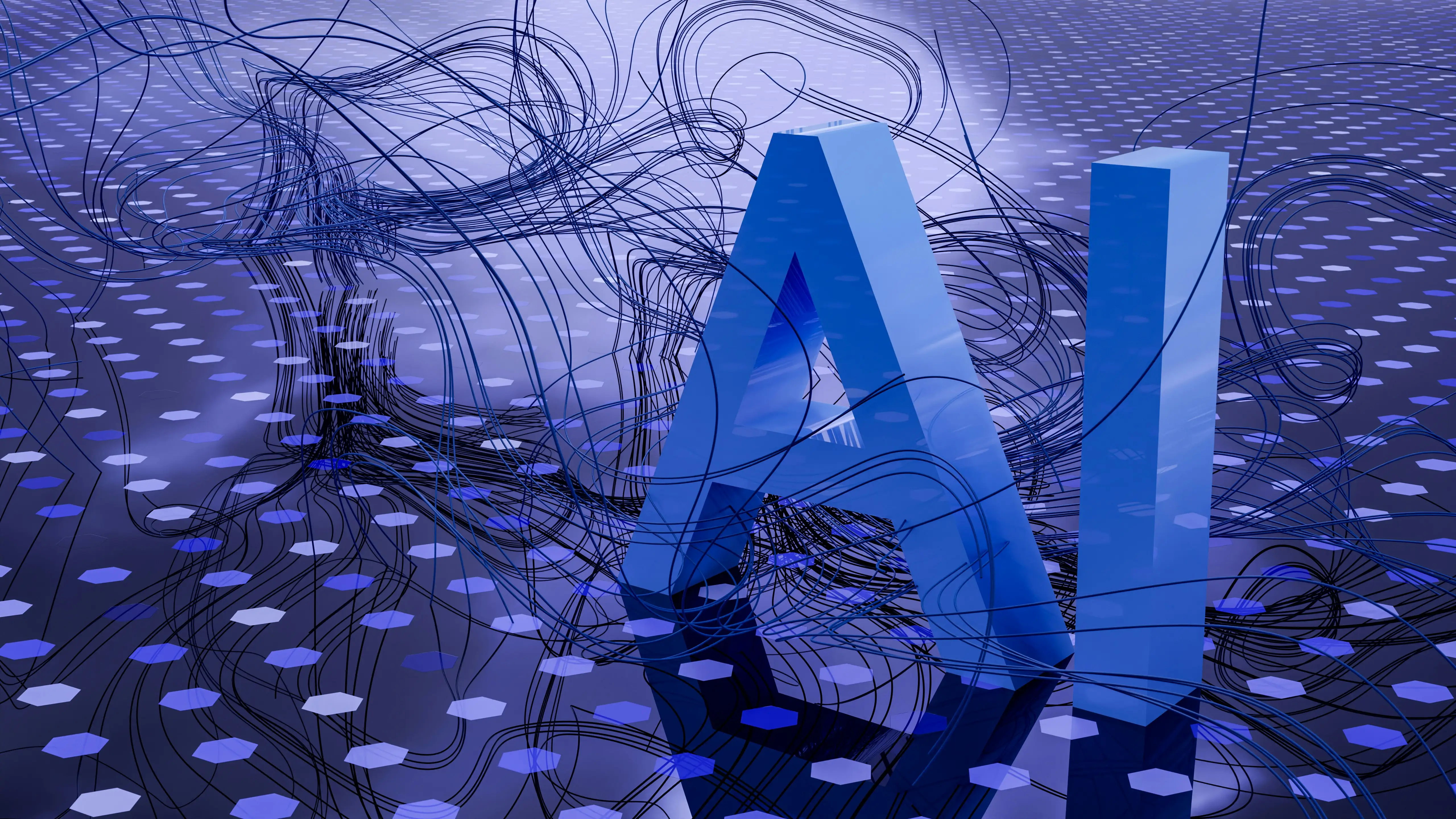The Impact of Artificial Intelligence on Project Management in the IT Industry
Artificial Intelligence (AI) is transforming sectors including IT project management in a way nowadays. The adoption of AI in managing projects is not just a passing fad but an essential tool for companies looking to stay in today's digital world competition. It helps businesses optimize their processes, make better decisions, and achieve better project results. This shift is especially important in efficient IT project management where saving time and resources are crucial factors.
AI software has the ability to analyze data sets to uncover insights that human project managers may miss out on noticing themselves. These insights are valuable for predicting risks in projects and improving resource management to ensure projects progress smoothly. For example, AI can help pinpoint areas where workflows may slow down and recommend changes to prevent delays. This proactive strategy boosts project efficiency and plays a role in the success of IT projects overall.
In addition to that point I made before about AI being used in project management, it's actually in line with the idea of total quality management! When you think about it, AI tools for managing projects really put a lot of emphasis on getting better and making sure the customers are happy. That way the projects turn out top-notch every time! This link between AI and quality is super important for companies that really care about giving their clients top-notch service and staying on top of their game all the time.
Incorporating AI in Scrum Practices
Scrum techniques have become quite popular in managing IT projects because of their adaptability and emphasis on improvement over time. Adding AI to Scrum methods could boost their efficiency more. AI can help with planning sprints by looking at data to estimate task durations accurately. This means teams can set goals realistically and manage IT projects effectively by allocating resources based on these informed estimates.
Furthermore, the utilization of AI can streamline tasks in the Scrum framework like updating task progress and producing reports. This automated process allows team members to dedicate their time to endeavors resulting in increased productivity. AI's ability to lessen duties enables teams to prioritize providing value through their efforts-a principle in the realm of Scrum methodologies.
Additionally, AI has the potential to improve communication among Scrum teams by analyzing team interactions and communication styles to pinpoint areas that need enhancement and propose methods to promote teamwork. This function is crucial for creating a united team atmosphere that's key to the triumph of any IT project.
As technology progresses further and further into the future's horizon, companies find themselves in a race to stay current by embracing cutting-edge IT solutions that can stand the test of time and remain pertinent in the changing landscape of business operations and consumer preferences. AI is at the forefront of this transformative journey by empowering enterprises to flexibly respond to market shifts and evolving customer needs. Harnessing AI's capabilities enables organizations to craft adaptable infrastructures capable of growing alongside technological progress, ensuring their endurance in the long run.
Incorporating AI into IT solutions can also bolster security measures against the rising tide of cyber threats by identifying irregularities and possible breaches in data patterns in time-a security strategy that safeguards sensitive data and fosters credibility with customers and partners.
In addition to that, AI-powered solutions have the ability to streamline resource distribution, enabling companies to adapt to market fluctuations. Through the use of analytics, firms can forecast changes in consumer demand and modify their approaches accordingly. This flexibility is crucial for staying in the evolving digital landscape of today.
The Influence of CI/CD Automation on IT Projects
Continuous Integration and Continuous Deployment (CI/CD) automation revolutionizes IT project management by automating the software development lifecycle to speed up the delivery of features and updates. AI improves CI/CD procedures by offering insights to teams for enhancing operations and streamlining workflows.
Using AI allows teams to automate testing procedures so that code modifications are carefully reviewed before implementation takes place. This automation not only accelerates the development timeline but also reduces the chance of mistakes occurring, resulting in superior software quality. Consequently, businesses can provide products that satisfy customer needs and adjust to evolving demands.
In addition to this, AI has the ability to improve teamwork between the development and operations departments by offering feedback and valuable insights. This aids in connecting these functions, building a sense of teamwork and mutual accountability. Such synchronization is crucial for IT project oversight, ensuring that everyone involved is striving towards shared objectives.
Total quality management (TQM) is a belief system that highlights the importance of enhancements and customer happiness in business practices. In the realm of IT projects powered by intelligence (AI), adhering to TQM ideologies is crucial to guarantee that projects not only fulfill technical requirements but also provide meaningful benefits to users. By incorporating TQM principles into AI endeavors, companies can improve the results of their projects and establish connections with customers.
AI has the capacity to aid Total Quality Management initiatives by offering insights based on data that guide decision-making processes effectively. One example is how AI tools can scrutinize customer feedback and usage trends to pinpoint ways for enhancing product and service quality. This continuous feedback mechanism plays a role in upholding top-notch standards, guaranteeing that endeavors are in sync with customer requirements.
Additionally, implementing Total Quality Management (TQM) principles in AI initiatives promotes a sense of responsibility and ongoing enhancement. By motivating teams to be accountable for their tasks and aim for standards, companies can establish a setting that nurtures creativity. This mindset is crucial for the triumph of every Information Technology (IT) endeavor as it enables teams to explore horizons and achieve outcomes.
Utilizing AI Analytics to Improve Decision-Making Processes
Integrating AI into IT project management offers a benefit by improving decision-making processes through AI analytics that provide project managers with immediate data and valuable insights to make quick and informed decisions when needed in dynamic settings affecting project results considerably.
By using AI technology to review project records and uncover hidden trends and patterns that may not be obvious to human supervisors, project managers can predict obstacles and deal with them in advance before they worsen. This forward-thinking strategy not only enhances project productivity but also minimizes the chances of expensive setbacks.
Moreover, AI-based analytics can assist in planning by offering insights into how resources are allocated and which projects should take precedence. Understanding the projects with the potential for returns allows organizations to use their resources efficiently, ensuring they concentrate efforts toward goals that align with their strategic vision.
Creating an Environment that Fosters Innovation through the Use of Intelligence
In order for companies to excel in today's era, it is crucial to cultivate an atmosphere that encourages innovation. Artificial intelligence (AI) has the potential to significantly contribute to fostering innovation by equipping teams with the resources and knowledge to test out and delve into concepts. Through the adoption of AI tools, organizations have the opportunity to establish a setting conducive to the growth of creativity and teamwork.
AI has the ability to enhance brainstorming sessions by examining data and proposing solutions to challenges. This feature enables teams to consider approaches and delve into opportunities, resulting in revolutionary concepts and resolutions. Moreover, AI aids companies in recognizing trends and technologies, making sure they remain at the forefront.
In addition to that, a culture that promotes innovation with the help of AI promotes learning and growth among employees as well as teams by giving them access to AI-generated data and analysis reports, which can encourage employees to improve their skills and expand their knowledge base. This dedication to progress is crucial for staying ahead in the fast-changing world of information technology.
The evolution of IT project management is undeniably linked to the progress in intelligence technology advancement. As businesses increasingly integrate AI tools into their operations, it becomes essential for project managers to keep abreast of trends and effective strategies. Embracing AI empowers project managers to refine their expertise and adjust to the evolving IT project management arena.
Investment in AI training and education is crucial for project managers aiming to utilize these technologies in their work processes. Understanding the integration of AI into workflows can enhance decision-making and contribute to project outcomes. This commitment to growth not only benefits personal career advancement but also enhances overall organizational achievements.
In addition to this point, it is crucial for companies to focus heavily on the considerations of Artificial Intelligence in project oversight. As AI tools continue to gain traction in sectors, it is important to guarantee that they are implemented with integrity and openness. By setting up standards and recommended procedures, companies can foster trust among partners and guarantee that their AI projects are in line with their beliefs and objectives.
An Overview of How AI has Influenced the Field of IT Project Management
Artificial intelligence is changing the game in IT project management by boosting effectiveness and decision-making while improving project results overall. Integrating AI technologies enables companies to adopt future-proof IT solutions that are sustainable and streamline operations while promoting an environment of creativity. By using AI alongside frameworks like Scrum and the core principles of quality management, organizations can refine their project management strategies to provide value to customers.
As companies get ready for the future of managing IT projects efficiently, using AI technology is also ethical decision-making that is paramount to success in this evolving digital era. Ensuring that projects are aligned with the changing digital landscape requires a responsible approach toward AI adoption. Project management powered by AI is more than just incorporating new tech; it's about cultivating a culture of ongoing growth and creativity that will influence the industry's future direction.












